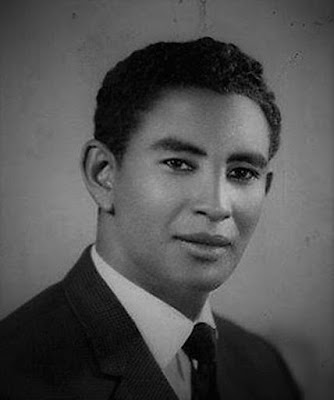Wardi was popular in many parts of the continent, from North Africa to West Africa to the Horn of Africa and beyond.
His son Abdulwahab once recounted how popular his father was with the following story: "One time a guy from Mali came to me on foot because he didn't have enough money. He told me that he wanted to see Mohammed Wardi. I said, "Ok, Mohammed Wardi is not here, he's in Egypt, why do you want to meet him?" He said, "I want to take a picture with him, and I want him to give me a cassette because I want to marry a girl, and the girl's father didn't want me, and he gave me very, very hard conditions: that if I go and meet Mohammed Wardi and bring his signature and his voice and a picture, then I will give you my daughter." I gave him my father's number in Cairo. He took the train 'til Halfa, then the boat 'til Egypt and he found my father and took a picture with him. My father then gave him a plane ticket, and he went back home and got married. This is a person who doesn't even know Arabic. He came from Mali, traveling for three months on foot. [It shows how] my father was loved in West Africa, East Africa, and the middle of Africa." (Abdulwahab Wardi interview with Okay Africa dot Com "The Story of Mohammed Wardi, 'The Last King of Nubia", September 17th, 2018).
Wardi was a social activist and member of the Sudanese Communist Party. He was sympathetic to the leftist coup which brought Major General Jaafar an-Nimeiry to power in 1969 but spent a lengthy period in detention after the abortive communist supported anti-Nimeiry coup of July 1971 which saw the execution of military officers such as Major Mustapha al-Atta and political figures such as the leader of the Sudanese Communist Party, Abdel Khaliq Mahjub.
He spent several periods in exile. Sudan's drift from secularism to Islamism burdened him as he felt Sharia Law negated freedom and creativity. He had been initially radicalised in the 1960s when the Sudanese government permitted the building of the Aswan High Dam which submerged Halfa, his ancestral home.
Wardi's mass appeal through his mixture of activism and music has been compared to Nigeria's Fela Kuti and Lebanon's Feiruz.
He was born on July 19th, 1932 (July 19th was the date of the fateful coup led by Major al-Attah as well as the date on which he recorded his first record for the radio) and died on February 18th, 2012, from kidney failure.
© Adeyinka Makinde (2022).
Adeyinka Makinde is a writer based in London, England.

